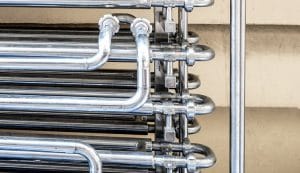 Heat exchangers offer a more convenient and modern solution to electrical thermal management than many other traditional solutions. However, that’s only the tip of the iceberg when it comes the myriad benefits that they provide for companies that choose to employ them. For example, besides being convenient, heat exchangers are also substantially more effective, efficient, and eco-friendly, providing a wide range of thermal management advantages to companies in all industries. (more…)
Heat exchangers offer a more convenient and modern solution to electrical thermal management than many other traditional solutions. However, that’s only the tip of the iceberg when it comes the myriad benefits that they provide for companies that choose to employ them. For example, besides being convenient, heat exchangers are also substantially more effective, efficient, and eco-friendly, providing a wide range of thermal management advantages to companies in all industries. (more…)
How Heat Exchangers Do More than Cool Electrical Enclosures
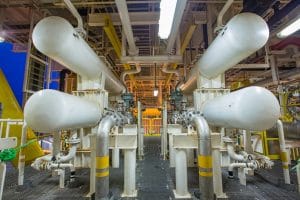 Cooling electrical enclosures such as control panels has always been where heat exchangers excelled most. However, it isn’t the only application that they excel at, and these days, the innovative heat transfer technology has become the basis for several other, equally important processes. Besides making it easier to cool smaller and more powerful technology with optimal efficiency and eco-friendliness, heat exchangers also make it possible to turn electrical waste heat into an important resource for other processes. (more…)
Cooling electrical enclosures such as control panels has always been where heat exchangers excelled most. However, it isn’t the only application that they excel at, and these days, the innovative heat transfer technology has become the basis for several other, equally important processes. Besides making it easier to cool smaller and more powerful technology with optimal efficiency and eco-friendliness, heat exchangers also make it possible to turn electrical waste heat into an important resource for other processes. (more…)
How Cooling Electrical Control Panels Became Simple
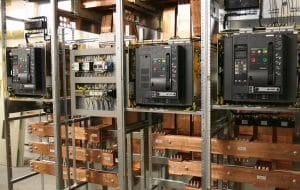 For companies that rely on technology to power their operations (which is virtually every company these days), the ability to efficiently cool electrical control panels and other enclosures is vital. Adequate thermal management is vital to ensuring that such enclosures don’t overheat, leading to damaged or destroyed equipment. Today, however, maintaining a consistently high level of efficient thermal management can be accomplished at reasonable costs and with minimal interaction from employees. Thanks to the advanced heat transfer methods employed by heat exchangers, cooling electrical control panels has become a much simpler and more efficient process. (more…)
For companies that rely on technology to power their operations (which is virtually every company these days), the ability to efficiently cool electrical control panels and other enclosures is vital. Adequate thermal management is vital to ensuring that such enclosures don’t overheat, leading to damaged or destroyed equipment. Today, however, maintaining a consistently high level of efficient thermal management can be accomplished at reasonable costs and with minimal interaction from employees. Thanks to the advanced heat transfer methods employed by heat exchangers, cooling electrical control panels has become a much simpler and more efficient process. (more…)
Why Is Thermal Management a Focus for Greener Business?
 While optimizing productivity and streamlining costs have always been important focal points for businesses, the need for greener processes and technological solutions has become equally important in recent years. That focus has taken companies in every industry to new heights of innovation, finding ways to eliminate waste and lower their environmental footprints in areas that they never thought of before. For example, with the advent of heat exchangers, the realm of electrical thermal management became a surprisingly impactful area to implement more eco-friendly processes. Since the focus on greener business has grown, heat exchangers have made thermal management one of its most significant aspects. (more…)
While optimizing productivity and streamlining costs have always been important focal points for businesses, the need for greener processes and technological solutions has become equally important in recent years. That focus has taken companies in every industry to new heights of innovation, finding ways to eliminate waste and lower their environmental footprints in areas that they never thought of before. For example, with the advent of heat exchangers, the realm of electrical thermal management became a surprisingly impactful area to implement more eco-friendly processes. Since the focus on greener business has grown, heat exchangers have made thermal management one of its most significant aspects. (more…)
How More Efficient Cooling Means More Productive Business
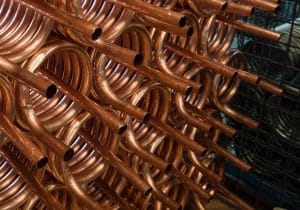 Lowering the overall costs of electrical thermal management is a natural result of the more streamlined and eco-friendly heat transfer methods used by modern heat exchangers. Without the need for clunky air conditioning or air compressing equipment, heat exchangers don’t require as much energy to operate or as much maintenance to keep running. However, their benefits go beyond just saving companies money. In many ways, the implementation of more advanced electrical cooling can also have a notably positive impact on a company’s overall productivity, and therefore, help boost its bottom line. (more…)
Lowering the overall costs of electrical thermal management is a natural result of the more streamlined and eco-friendly heat transfer methods used by modern heat exchangers. Without the need for clunky air conditioning or air compressing equipment, heat exchangers don’t require as much energy to operate or as much maintenance to keep running. However, their benefits go beyond just saving companies money. In many ways, the implementation of more advanced electrical cooling can also have a notably positive impact on a company’s overall productivity, and therefore, help boost its bottom line. (more…)
Why Improved Accuracy with 3D Prototyping Matters
 The concepts behind modern heat exchangers changed the face of electrical thermal management long ago. However, continued improvements in technology, thermal management processes, design and manufacturing processes, and more have kept them continuously evolving, which has forced manufacturers to implement more efficient and streamlined methods of innovating new solutions. Along with close collaboration between design, manufacturing, and thermal management teams, those methods have also largely included the use of advanced imaging and printing technologies that allow for rapid 3D prototyping of various heat exchanger components. Rapid prototyping helps ensure that any solution a manufacturer comes up with will be created with optimal accuracy and perform with optimal success. (more…)
The concepts behind modern heat exchangers changed the face of electrical thermal management long ago. However, continued improvements in technology, thermal management processes, design and manufacturing processes, and more have kept them continuously evolving, which has forced manufacturers to implement more efficient and streamlined methods of innovating new solutions. Along with close collaboration between design, manufacturing, and thermal management teams, those methods have also largely included the use of advanced imaging and printing technologies that allow for rapid 3D prototyping of various heat exchanger components. Rapid prototyping helps ensure that any solution a manufacturer comes up with will be created with optimal accuracy and perform with optimal success. (more…)
Important Things that Heat Exchangers Naturally Reduce
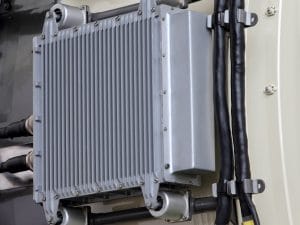 The processes of electrical thermal management are obviously streamlined when companies choose heat exchangers to handle them. Being smaller and more versatile than traditional air conditioners, heat exchangers revolutionized the way many companies thought about electrical cooling. Since then, companies that have turned to heat exchangers for electrical thermal management have also experienced a number of other benefits, most notably in the form of significantly reduced costs in several important areas. (more…)
The processes of electrical thermal management are obviously streamlined when companies choose heat exchangers to handle them. Being smaller and more versatile than traditional air conditioners, heat exchangers revolutionized the way many companies thought about electrical cooling. Since then, companies that have turned to heat exchangers for electrical thermal management have also experienced a number of other benefits, most notably in the form of significantly reduced costs in several important areas. (more…)
2 Ways Heat Exchangers Streamline Wastewater Treatment
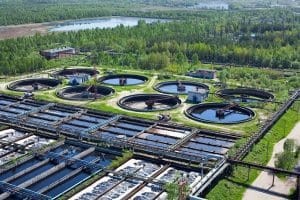 Treating wastewater has long been a vital process for communities as a whole, but these days, many companies throughout various industries also rely on it to keep their operations more eco-friendly. That’s because many production and manufacturing processes produce large amounts of waste that can be carried away within water sources as they’re released into the environment. Because of its importance, wastewater treatment has become a vital endeavor for modern companies, and with the help of advanced heat exchangers, they’ve been able to maintain optimal efficiency and reliability in their wastewater treatment processes. (more…)
Treating wastewater has long been a vital process for communities as a whole, but these days, many companies throughout various industries also rely on it to keep their operations more eco-friendly. That’s because many production and manufacturing processes produce large amounts of waste that can be carried away within water sources as they’re released into the environment. Because of its importance, wastewater treatment has become a vital endeavor for modern companies, and with the help of advanced heat exchangers, they’ve been able to maintain optimal efficiency and reliability in their wastewater treatment processes. (more…)
How Heat Exchangers Protect Enclosures from Contaminants
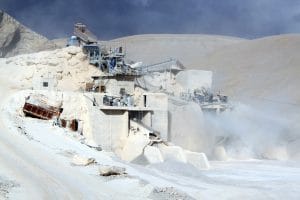 Streamlining the process of electrical thermal management is one of the most prominent benefits of advanced heat exchangers. However, it isn’t just their ability to prevent electrical overheating that makes them such a benefit to modern industries. For example, in addition to providing high-performance thermal management at reduced costs and improved efficiency, heat exchangers also help electrical enclosures maintain a high level of ingress protection to ensure that sensitive electrical components within it remain safe from potentially harmful contaminants. While this is always important, it’s especially so in conditions where dust, dirt, moisture, volatile substances, and more are common components of the environment. (more…)
Streamlining the process of electrical thermal management is one of the most prominent benefits of advanced heat exchangers. However, it isn’t just their ability to prevent electrical overheating that makes them such a benefit to modern industries. For example, in addition to providing high-performance thermal management at reduced costs and improved efficiency, heat exchangers also help electrical enclosures maintain a high level of ingress protection to ensure that sensitive electrical components within it remain safe from potentially harmful contaminants. While this is always important, it’s especially so in conditions where dust, dirt, moisture, volatile substances, and more are common components of the environment. (more…)
When Is Below-Ambient Cooling Necessary?
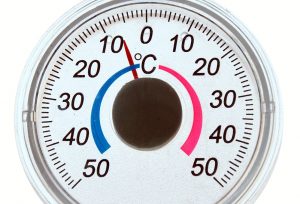 When it comes to electrical enclosures, ambient refers to the temperature just outside of the enclosure. In many applications, this temperature is well below the system’s maximum operating temperature and offers a sufficient baseline for cooling the enclosure. However, in some applications, a system’s high demands and/or the environment surrounding the equipment makes it necessary to cool the electrical enclosure to below the ambient temperatures outside of it. In such cases, companies can still benefit from more efficient, cost-effective, and eco-friendly thermal management thanks to advanced below-ambient heat exchangers. (more…)
When it comes to electrical enclosures, ambient refers to the temperature just outside of the enclosure. In many applications, this temperature is well below the system’s maximum operating temperature and offers a sufficient baseline for cooling the enclosure. However, in some applications, a system’s high demands and/or the environment surrounding the equipment makes it necessary to cool the electrical enclosure to below the ambient temperatures outside of it. In such cases, companies can still benefit from more efficient, cost-effective, and eco-friendly thermal management thanks to advanced below-ambient heat exchangers. (more…)







